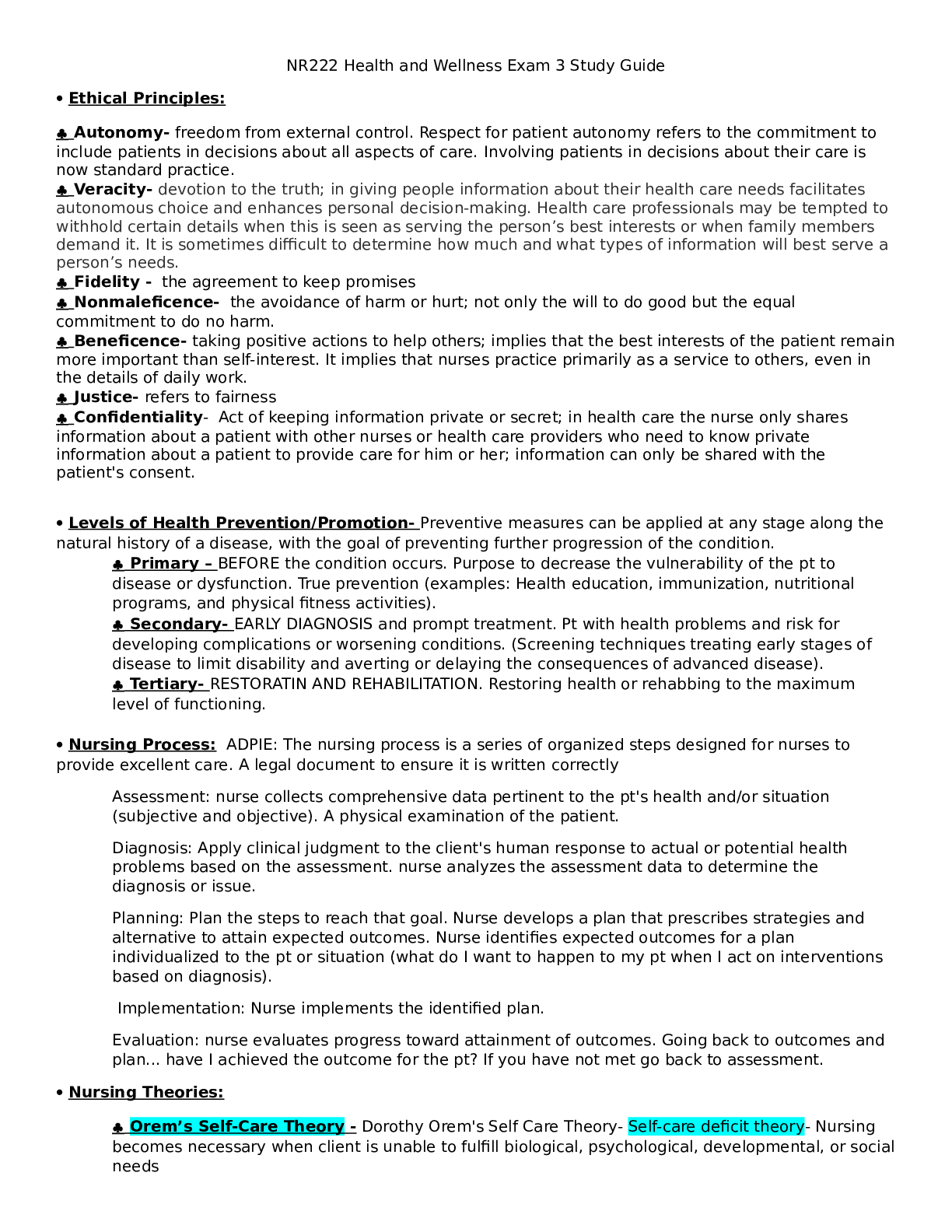NR222 Health and Wellness Exam 3 Study Guide
Course
Project Management
Subject
Chemistry
Category
Questions and Answers
Pages
18
Uploaded By
ATIPROS
Preview 4 out of 18 Pages
.png)

Download all 18 pages for $ 9.50
Reviews (0)
$9.50
